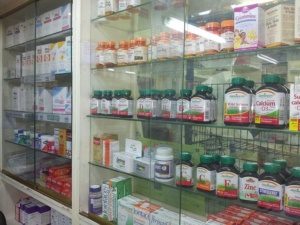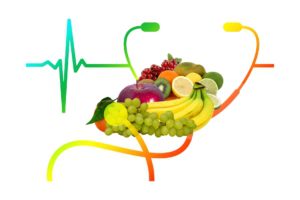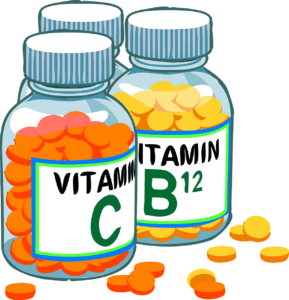Navigating Dietary Supplements for Endometriosis
Dietary supplements are commonly recommended for addressing endometriosis, and there are specialized vitamins and minerals designed for this purpose. Do nutritional supplements play a role in managing endometriosis, and if so, which specific supplements should you consider using?
Understanding Dietary Supplements
Dietary supplements, often abbreviated as NHS (Nutritional and Herbal Supplements), contain specific nutrients, such as vitamins, minerals, or trace elements. These nutrients are provided in concentrated or isolated forms and are available in various formats, including (effervescent) tablets, powders, capsules, and more. Dietary supplements also include plant-based and individual nutrients like protein powder.
Dietary Supplements: Not a Universal Necessity
This statement holds when you are healthy and maintain a balanced diet. However, for women dealing with endometriosis, the optimal health state may not be the reality. Does this make dietary supplements a logical consideration? Not necessarily. In theory, even with endometriosis, it is possible to obtain all the necessary nutrients, vitamins, minerals, trace elements, and secondary plant compounds through a well-balanced, healthy diet. However, there are exceptions to every rule.
Who Can Benefit from Dietary Supplements?
There are specific situations where dietary supplements can offer health benefits:
- Women planning to conceive or already pregnant should consider incorporating folic acid supplements [1].
- Pregnant women, in particular, require additional iron and iodine, which can be supplemented during pregnancy.
- Individuals with limited exposure to sunlight or those who have minimal outdoor activities, leading to insufficient skin UV exposure, may need vitamin D supplements. This applies mainly to those who spend excessive time indoors.
- Competitive athletes and specific individuals with chronic illnesses have heightened nutritional demands that cannot be met through a standard diet due to increased stress or metabolic conditions. In these well-defined cases, specific dietary supplements are necessary. However, endometriosis does not fall within these conditions.
- Individuals adhering to a vegan diet often face difficulty obtaining sufficient vitamin B12 solely from their food intake. Despite claims made in various “vegan” literature or counterarguments presented online, scientific evidence unequivocally demonstrates that the quantity of vitamin B12 obtained from vegan sources falls short over the long term.
- For vegetarians who exclude fish from their diet, especially for vegans, the consumption of specific omega-3 fatty acids (DHA & EPA) becomes crucial. These can be sourced from red algae or through capsules derived from red algae or fish oil. Contrary to misconceptions, there are no vegetable oils that encompass all omega-3 fatty acids. DHA and EPA are classified as essential, implying that the body cannot produce them, and their presence is vital.
Furthermore, addressing proven deficiencies due to other causes is essential and can be diagnosed through a medical evaluation. Many of these vitamins and trace elements play significant roles in inflammation-related functions or directly impact endometriosis. Whenever possible, however, sourcing these nutrients from a regular diet is preferable. Dietary supplements should be considered only when diet alone cannot meet the requirements.
Potential Health Risks of Dietary Supplements
While “more is better” might seem to apply to vitamins, minerals, and trace elements, it is crucial to recognize that excessive consumption of these seemingly health-promoting substances can be dangerous. Here are a few examples:
- Excessive magnesium intake can lead to diarrhea, muscle weakness, and lowered blood pressure.
- An abundance of calcium has the potential to trigger irregular heartbeats and even result in heart attacks [3].
- Vitamin A, when ingested in excessive amounts, can cause visual disturbances and other symptoms of poisoning, potentially leading to fatalities [2].
- Surprisingly, an excessive vitamin D intake can have a reverse effect: instead of aiding calcium storage in bones, it can lead to calcium dissolution. The calcium leached from bones can subsequently harm organs.
These illustrative examples of vitamins and minerals, often consumed through effervescent tablets or multivitamin supplements, emphasize a crucial point: even readily available dietary supplements can significantly harm your body.
Is it Beneficial to Use Dietary Supplements for Endometriosis?
Briefly: generally, no. This holds true unless you fall within specific exceptions, such as being pregnant or expecting a pregnancy, being an athlete engaged in competitive sports, avoiding outdoor activities, or abstaining from consuming both sea fish and red algae.
Currently, there is no conclusive evidence that synthetically produced or isolated vitamins, minerals, or trace elements can be absorbed by the body to the same extent as they would be in their natural interplay with elements like secondary plant compounds present in whole foods. Consequently, the money spent on various supplements might not yield the intended positive outcomes, and the potential risks could outweigh the benefits [4]. This concept extends to isolated components like resveratrol (more on this here) and phytoestrogens.
A well-balanced, healthy diet rich in fresh fruits and vegetables sourced from certified organic cultivation can meet all your nutritional requirements – even in endometriosis. It is advisable to conserve funds that might otherwise be spent on dietary supplements and instead channel those resources into adopting a nourishing diet featuring organically cultivated food.
References
- Finding the Perfect Nutritionist: A Step-by-Step Guide - 5. October 2023
- Does Monk’s Pepper Help with Endometriosis? - 5. October 2023
- A Brief Overview of Dietary Fats - 29. September 2023






